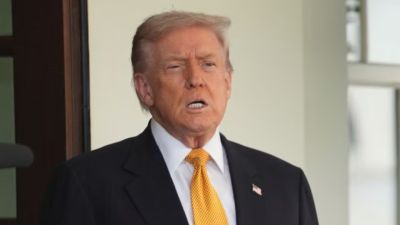MEA spreads the word to battle regional terrorism
NEW DELHI, AUG 2: The Ministry of External Affairs is keeping up its diplomatic momentum in the post-Kargil period by focussing on region...

NEW DELHI, AUG 2: The Ministry of External Affairs is keeping up its diplomatic momentum in the post-Kargil period by focussing on regional terrorism, such as in Pakistan and Afghanistan, and stressing that the international community must take steps to choke its sources and manifestations.
From Washington to Tehran, special envoys and senior Government officials have fanned out to brief their counterparts and members of the intellectual elite, to drive home the message that New Delhi’s primary concern now is to battle cross-border terrorism.
Former Principal Secretary N N Vohra and former foreign secretary J N Dixit are in Washington this week to brief various think-tanks, legislators in the US Congress and officials in the Administration. Foreign Secretary K Raghunath has, meanwhile, returned from Iran — a neighbour of Pakistan and a key player in the Afghan dialogue — only yesterday, after putting into place for the first time a structured dialogue between the two foreign offices.
The diplomaticbrief to both Capitals is said to be simple: India will not hesitate to renew the dialogue with Pakistan on all issues, including Kashmir, but Islamabad must display the manifest intention to put an end to cross-border terrorism.
They are reiterating the central thought in External Affairs Minister Jaswant Singh’s dialogue with his counterparts across the world :“Pakistan cannot expect to win India’s trust in the winter and conduct
in the summer.”
Interestingly, as Pakistan comes under growing international pressure — especially the US — to democratise its society and control extremist elements, relations between Tehran and Washington are slowly, but surely, on the mend.
In the post-Kargil era, the key word that is drawing the immediate attention of the international community has become terrorism.’ The Americans, obsessed by the terror unleashed on their citizens by Osama bin Laden (based in Afghanistan), have said they will contemplate military strikes against him.
A WashingtonPost story over the weekend said India was one of bin Laden’s chief targets, making public the linkage that India has over the last decade striven to do.
Iran’s leadership, both liberal and conservative, has meanwhile been openly critical of the Taliban’s extremist ideological takeover of Afghanistan and been supportive of the Afghan opposition, led by Tajik leader Ahmad Shah Masood.
It is these common interests that are bringing India, though independently, closer to the US and Iran. Foreign Secretary Raghunath and Iranian Deputy Foreign Minister Mohsen Aminzadeh decided last week to put together four working groups to promote bilateral dialogue: on bilateral matters, including strategic and regional issues like Afghanistan; international and multilateral issues; cooperation in areas of mutual interest, an euphemism for the joint exploration of oil and natural gas; and cultural dialogue, including the dialogue among civilisations.’





- 01
- 02
- 03
- 04
- 05


























